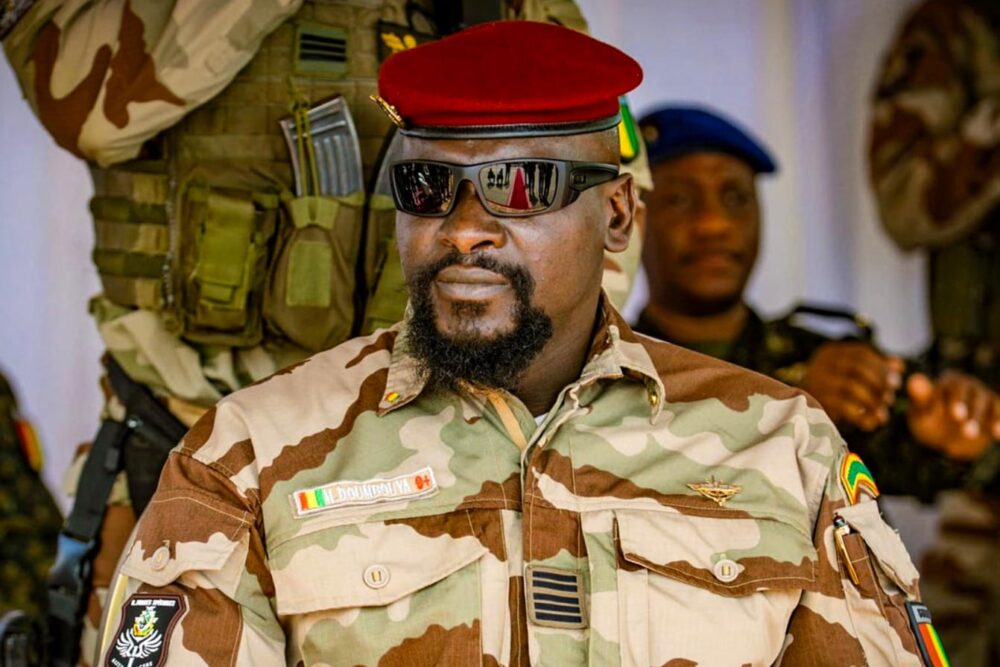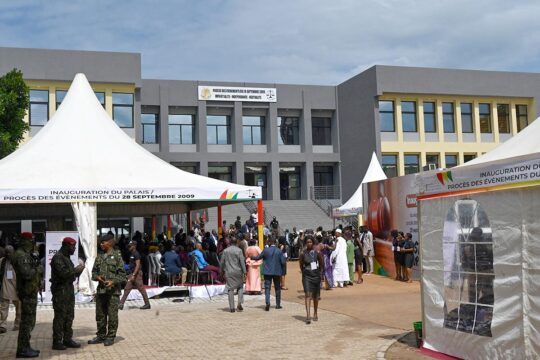Guinea's ex-dictator Moussa Dadis Camara, jailed for 20 years over a 2009 massacre, was pardoned for "health reasons" by the west African country's junta leader, with a rights body Saturday saying he has left prison.
"Upon the proposal of the minister of justice, a presidential pardon is granted to Mr Moussa Dadis Camara for health reasons," said a decree read out on television by presidential spokesperson General Amara Camara late Friday.
A source in the Guinean human rights federation OGDH told AFP Dadis Camara had left jail late Friday and had arrived in the capital Conakry.
"He made a brief stop-off at his home then was driven to a villa in a chic Conakry district where he is being monitored by police," the source added.
Relatives and supporters of the former leader gathered near his house to show their support.
Following a landmark trial permitted by the junta after it took power in 2021, a court found Dadis Camara guilty of crimes against humanity and sentenced him in July to 20 years behind bars.
On September 28, 2009, at least 156 people were killed by gunfire, knives, machetes, or bayonets in a massacre at an opposition rally, according to a UN-mandated international commission of inquiry.
Hundreds more were wounded and at least 109 women were raped.
The abuses continued for several days against women who were held captive, and detainees were tortured.
Only 57 bodies of the victims were recovered, according to families and human rights organisations, and the toll is believed to be far higher.
Dadis Camara was found responsible for the massacre and for failing to punish its perpetrators, a judge ruled.
Seven other people were also sentenced to terms of up to life imprisonment for their role in the massacre.
'Abject politicking'
The Office of the Prosecutor of the International Criminal Court (ICC) had welcomed the verdict, calling it a "landmark moment in establishing the truth... and bringing to account those bearing the greatest responsibility for the atrocities committed".
Camera's younger brother Jean Dadis Camara told AFP he was delighted to hear the news of the pardon.
"Everyone is happy. We thank the president," he said.
"We are extremely grateful to President Mamadi Doumbouya for this pardon. It is the greatest gift for the entire family," said Marcus Olivier Thea, a close friend and confidant of the former dictator.
General Doumbouya, the junta chief, announced Wednesday that compensation ordered by a judge would be paid to the victims of the September 28, 2009, massacre.
Victims are due reparations ranging from 200 million Guinean francs ($23,100) to 1.5 billion Guinean francs ($173,300).
One of the country's few dissident groups, the National Constitution Defence Front, denounced the pardon for Dadis Camara and the compensation decree, however.
In a statement, it called the move "the most cynical manipulation and abject politicking".
"Mamadi Doumbouya is playing games with Guineans' intelligence with the aim of holding onto power," it said.
Some former victims of the 2009 crackdown criticised the release.
A victim of sexual violence, who asked not to reveal her full name, said measures should have been taken to warn and protect other victims.
"Many people testified in public, and now with Dadis's release, their lives are in danger," she said. "I am not against the pardon in the name of national reconciliation, but it's the way it was done that bothers me."
This week's decrees came amid severe restrictions on freedom in Guinea.
Many opponents of the junta have disappeared or are being questioned by prosecutors, demonstrations against the military are regularly banned, and several media outlets across the country have been shut down.




